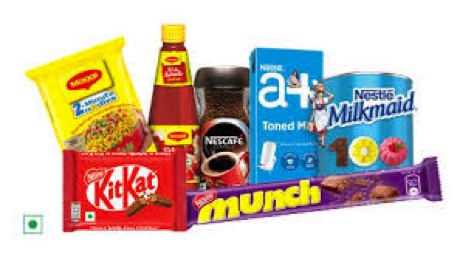Though the market for packaged sweets remains largely unorganised in India, the larger consumer trend towards packaged foods in the wake of the Covid-19 pandemic has given it a boost.The market for traditional Indian sweets is sized at `60,000-65,000 crore
Dairy brands such as Amul and Mother Dairy have been expanding their presence in the mithai segment in a bid to tap the increased consumption of packaged foods in the country. Amul has introduced over 13 products in the category since the onset of the pandemic and has also expanded its retail presence.
Likewise, Mother Dairy, which only had milk cake in its sweets portfolio, launched four more products — orange mawa barfi, frozen rasmalai, gulab jamun and rasgulla —before Diwali last year. The company further expanded the category in January and added Mathura peda and mewa atta laddoo to it. Tamil Nadu Co-operative Milk Producers’ Federation’s brand Aavin, too, had launched products such as Bombay badam halwa, chocolate nuts burfi, Bombay mundiri halwa, chocolate kaju katli, and pista nuts burfi last year.
Sweets market is largely unorganised
Though the market for packaged sweets remains largely unorganised in India, the larger consumer trend towards packaged foods in the wake of the Covid-19 pandemic has given it a boost. Mother Dairy, for instance, used to sell 3,000 kg of its milk cake per month before the pandemic, which has grown by four-five times in the last one year.
According to Rajat Tuli, senior principal, consumer and retail practice, Kearney, the market for traditional Indian sweets is sized at `60,000-65,000 crore, of which organised players have only a 5-7% share. A large share of the organised market is captured by snacks brands such as Haldiram’s and Bikano, as per industry estimates. The dairy players draw less than 2% of their sales from the packaged sweets category, say sources.
Amul had reported a turnover of `38,550 crore for FY20, while Mother Dairy’s revenue stood at over `10,447 crore during the period.
The pandemic, however, has now presented an opportunity for these brands to expand their presence in the largely untapped segment. Amul, for instance, besides launching new products has also introduced its sweets in 300 modern trade (MT) stores. Overall, its traditional sweets portfolio is now present in 35,000 retail touchpoints.
“Currently, sweets are manufactured in 10 plants across the country and we plan to add four more plants in Delhi-NCR, Uttar Pradesh and Punjab this year,” says Jayen Mehta, senior general manager (planning and marketing), Gujarat Cooperative Milk Marketing Federation, which owns the brand Amul.
Mother dairy looking at Rs 100 crore sweets segment
Mother Dairy, too, which is eying a topline of `100 crore from the category in the next three years, is expanding its focus across MT and e-commerce. Region-wise, the focus initially is on North India, where the company has 2000 retail touchpoints. It has already launched these products on BigBasket and plans to be present on other e-commerce marketplaces by the end of this year. The company has kept the pricing of its products competitive to gain market share.
“We have limited presence in this category and the aim is to draw customers and hence we are not charging any premium,” says Sanjay Sharma, business head – dairy products, Mother Dairy. According to Sharma, while its competitors are offering products like rasgulla and gulab jamun in the `230-250/kg range, Mother Dairy has priced them at `210-220/kg.
Experts say due to the decline in HoReCa (hotels, restaurants and cafes) sales, these brands are trying to tap the traditional sweets market, which helps them utilise the surplus milk. But the biggest impediment to their plan is likely to be the ‘lower shelf-life’ of the products.
“Though these brands are trying to increase the shelf life of traditional sweets by offering better packaging, it also increases the cost of these products,” says Tuli of Kearney. Given that these brands compete with local shops, which offer these products at much lower prices, the cost becomes crucial to their ambition of gaining market share, he adds.
According to Devangshu Dutta, CEO of retail consultancy Third Eyesight, packaged mithai has been slow to take off in the Indian market due to inconsistencies in taste as several of these products need additives to increase shelf life. Going ahead, he says, as brands work on these issues, they are set to gain ground.



























